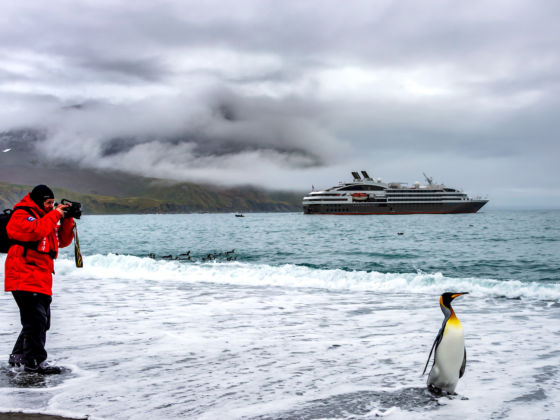We often worry about animals spreading diseases to humans, but not the other way around. Now, the discovery of human-linked pathogens in bird feces have revealed that humans may be causing animals in Antarctica to get sick. The phenomenon is called reverse zoonosis, and for the first time ever, it’s spread to the world’s most isolated continent. According to scientists, consequences of this new human-to-animal disease route could prove dire to Antarctic bird colonies, even contributing to the collapse of their population.

Tourists in Antarctica May Be Making Penguins Sick
Microbiologist Marta Cerdà-Cuéllar at the Research Center for Animal Health in Barcelona rejected the idea that Antarctic animals were immune to reverse zoonosis and set out to collect fecal samples from 24 bird species across the Southern Ocean. Increasingly, birds and humans have been coming into contact in remote areas due to research centers and growing tourism numbers. From the fecal samples, scientists discovered bacterial species that cause food poisoning, salmonella, and other gastrointestinal diseases, supporting their conclusion that reverse zoonosis has already spread to Antarctic waters.
“We often think of polar environments as being too cold,” said Elliot, “and that disease transmission is not a huge threat, but the authors [of the study] have clear evidence that… bacteria can spread widely in polar environments.”
Since this is the first time Antarctic birds have been exposed to these pathogens, it could have devastating consequences for their survival. To reduce the impact of human pathogens on wildlife, scientists suggest better enforcement of rules surrounding the safe disposal of human waste in Antarctica. It may, however, prove to be an uphill battle as tourism in these far-flung reaches is rising quickly.
“While we should do as much as possible to reduce transmission,” Elliot says, “it’s hard to believe that we will stop tourism and science at these sites, and so it is hard to believe that humans won’t continue to transmit pathogens.”
H/T: Science